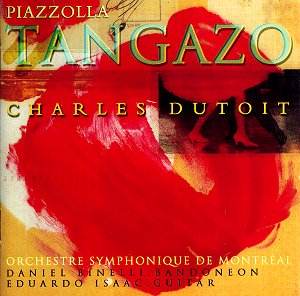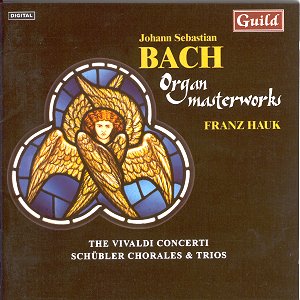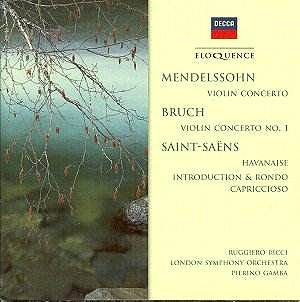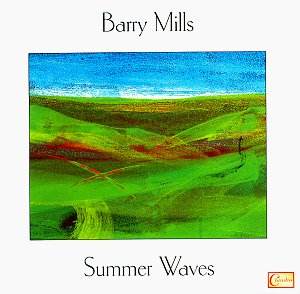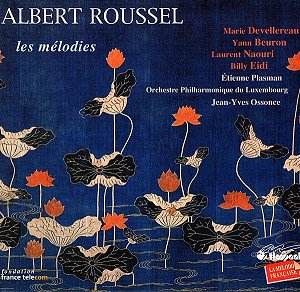 Composer: Albert Roussel
Composer: Albert Roussel
Works: Quatre Poèmes, Opus 3; Quatre Poèmes, Opus 8; La Ménace, Opus 9; Flammes, Opus 10; Deux Poèmes chinoises, Opus 12; Deux Mélodies, Opus 19; Deux Mélodies, Opus 20; Deux Poèmes de Ronsard, Opus 26; Odes anacréontiques, Opus 31; Odes anacréontiques, Opus 32; Deux Poèmes chinoises, Opus 35; Deux Vocalises; Jazz dans la nuit, Opus 38; A flower given to my daughter; Deux Idylles, Opus 44; Deux Poèmes chinoises, Opus 47; Deux Mélodies, Opus 50; Deux Mélodies, Opus 55
Performers: Marie Devellereau (Soprano), Yann Beuron (Tenor), Laurent Naouri (Baritone), Billy Eidi (Piano), Étienne Plasman (Flute), Luxembourg Philharmonic Orchestra, Jean-Yves Ossonce (Conductor)
Recording: Recorded May and July 2001, Luxembourg
Label: Timpani 2C2064 [2CDs: 49.38+55.47]
Albert Roussel stands as a pivotal figure in the early 20th-century French musical landscape, a composer whose breadth and depth are often overshadowed by his more famous contemporaries. His complete songs, collected in this compelling two-disc set, reflect not only his evolution as a composer but also the diverse influences that shaped his artistic voice. Roussel’s songs traverse an array of themes—from the pastoral to the exotic—imbued with a melodic charm that speaks to both the heart and intellect of the listener.
The performances in this collection are exemplary, featuring a trio of accomplished vocalists: soprano Marie Devellereau, tenor Yann Beuron, and baritone Laurent Naouri. Each singer brings a distinctive quality to their interpretations, effectively illustrating Roussel’s nuanced settings. Naouri’s baritone shines particularly in “La Ménace,” where the orchestral accompaniment deftly complements the vocal line, enhancing the song’s dramatic tension. The orchestration here is rich yet transparent, allowing Naouri’s voice to maintain clarity while being enveloped in the lush textures of the Luxembourg Philharmonic Orchestra under Jean-Yves Ossonce’s perceptive direction.
The selection of songs is thoughtfully curated, revealing the evolution of Roussel’s style from the late Romantic to a more modern harmonic language. For instance, the early “Quatre Poèmes” of Opus 3 exhibit the lyrical qualities typical of 19th-century mélodie, while later works, such as the “Deux Poèmes chinoises,” reflect his fascination with Eastern aesthetics, a legacy of his naval career. The crystalline clarity of the melodies and their intricate rhythmic structures showcase Roussel’s adeptness at marrying text and music, a hallmark of French song. Devellereau’s interpretation of these songs is particularly noteworthy; her voice captures both the delicacy and the emotional weight of the texts, especially in the ethereal “Deux Poèmes chinoises, Opus 47,” where the flute of Étienne Plasman weaves an obligato line that elevates the overall texture.
The sound quality of this recording is commendable, with a well-balanced mix that highlights the instrumental and vocal components without overshadowing either. The engineering captures the atmosphere of the performance space, allowing for a sense of intimacy that draws the listener into Roussel’s world. The accompanying booklet is equally impressive, providing insightful commentary on the works alongside the full texts, facilitating a deeper engagement with the music.
Roussel’s songs, though not as frequently performed as those of his contemporaries like Fauré or Debussy, deserve a place in the repertoire of anyone interested in the richness of French song. This collection serves both as an introduction to his vocal works and as a testament to his significance as a composer. The performances here are marked by sensitivity and a genuine passion for Roussel’s art, ensuring that this release is not only a scholarly contribution but also a thoroughly enjoyable listening experience. The combination of committed singing, thoughtful interpretations, and high production values renders this collection a significant achievement in the realm of recorded song literature.
